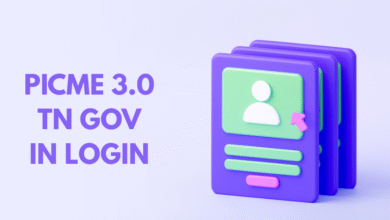The Evolution and Impact of http: //bit.ly/3fdxp9a Shortening with Bitly

In the digital age, where every character counts in online communication, URL shortening has become a cornerstone of efficient web navigation and marketing. Services like Bitly have transformed how we share and manage links, making long, unwieldy URLs concise and user-friendly. This article explores the history, mechanics, benefits, and modern applications of URL shortening, with a focus on Bitly’s Connections Platform, a leader in the field. From its origins in the era of character-limited platforms like Twitter to its current role in omnichannel marketing, URL shortening has reshaped digital connectivity. We’ll delve into how Bitly’s tools—short URLs, QR codes, and landing pages—empower businesses and individuals, concluding with insights on its future potential.
The Origins of URL Shortening
URL shortening emerged in the early 2000s as a response to the growing complexity of web addresses. As websites adopted dynamic URLs filled with parameters, sharing links became cumbersome, especially on platforms with character limits. Twitter’s 140-character cap, introduced in 2006, was a catalyst for URL shorteners. Long URLs consumed valuable space in tweets, prompting services like TinyURL and Bitly to offer solutions. Bitly, founded in 2008 by Peter Stern in New York, quickly rose to prominence, capturing 46% of the URL shortening market by 2014, overtaking competitors like TinyURL. Its integration with Twitter as the default shortener solidified its position, addressing the need for concise, shareable links.
The mechanics of URL shortening are straightforward. A long URL is submitted to a service like Bitly, which generates a shorter alias using hash codes. This alias redirects users to the original address via a server. For example, a URL like https://example.com/long/path/with/parameters might become bit.ly/abc123. The shortened link saves space while maintaining functionality, making it ideal for social media, SMS, and print media. Bitly’s early success stemmed from its simplicity and reliability, offering free shortening without registration, though premium features required an account.
How Bitly Works: Technology and Features
Bitly’s Connections Platform goes beyond basic URL shortening, offering a suite of tools for link management, analytics, and audience engagement. At its core, Bitly saves a long URL in its database and assigns it a unique short link. When users click the short link, Bitly’s servers redirect them to the original URL, logging metrics like click count, geographic location, and referral source. This data is invaluable for marketers tracking campaign performance.
Key Features of Bitly
- Short URLs: Bitly’s core function is generating concise links that are easy to share. Users can customize the hash code (e.g., bit.ly/Example) for branding or memorability, enhancing user trust.
- QR Codes: Bitly’s advanced QR code generator allows businesses to create scannable codes for print and digital campaigns. These codes link to websites, profiles, or forms, bridging offline and online interactions.
- Landing Pages: Bitly Pages enable users to create mobile-optimized landing pages in minutes, ideal for campaigns needing a dedicated destination without complex web development.
- Analytics: Registered users access detailed click statistics, including time, location, and device data, enabling data-driven decisions. This feature is critical for businesses optimizing marketing strategies.
- Integration: Bitly integrates with social media platforms, email marketing tools, and SMS, streamlining link sharing across channels.
Unlike some competitors, Bitly supports HTTPS redirects, ensuring secure connections, though users cannot toggle between HTTP and HTTPS for existing links. The platform’s user-friendly interface and robust features make it accessible to individuals, small businesses, and enterprises alike.
Benefits of URL Shortening
URL shortening offers numerous advantages, particularly in marketing, user experience, and analytics. Below are the primary benefits, with examples of Bitly’s impact:
1. Enhanced User Experience
Long URLs can deter clicks, especially if they appear complex or spammy. Shortened links are clean, professional, and trustworthy. For instance, a retailer sharing a product link like bit.ly/NewSneakers is more inviting than a multi-line URL with tracking parameters. Bitly’s customizable links further boost brand recognition, as users associate the link with the company.
2. Space Efficiency
In character-constrained environments like social media posts, SMS, or print ads, short URLs maximize space for messaging. A 280-character tweet benefits from a 10-character Bitly link over a 50-character original URL, leaving room for compelling text.
3. Analytics and Insights
Bitly’s analytics provide granular data on link performance. Businesses can track how many users clicked a link, where they came from, and what devices they used. For example, a restaurant using a Bitly QR code on a flyer can measure scans and adjust its campaign based on peak engagement times.
4. Branding Opportunities
Customized short links reinforce brand identity. A company like Nike could use bit.ly/NikeRun to promote a marathon, making the link memorable and aligned with its brand. This contrasts with generic hash codes, which lack personality.
5. Versatility Across Channels
Bitly’s tools support omnichannel strategies. Short links and QR codes work in emails, social media, print ads, and even packaging. A healthcare provider might use a Bitly link in an email to schedule appointments, while a retailer uses a QR code on packaging to link to product details.
6. Security and Reliability
Bitly’s HTTPS support ensures secure redirects, and its platform minimizes downtime, ensuring links remain functional. This reliability is crucial for time-sensitive campaigns, such as flash sales or event promotions.
Applications of Bitly in Modern Marketing
Bitly’s versatility makes it a staple in various industries, from e-commerce to healthcare. Below are real-world applications, highlighting how businesses leverage Bitly’s tools:
E-Commerce
Online retailers use Bitly to promote products and track engagement. A short link in a social media post can drive traffic to a product page, while analytics reveal which platforms yield the highest conversions. For example, a clothing brand might use bit.ly/WinterSale to promote a seasonal campaign, monitoring clicks to optimize ad spend.
Healthcare
Bitly simplifies patient communication. A clinic might use a QR code on a flyer to link to appointment booking forms or post-op instructions. As noted in Bitly’s case studies, encrypted short links ensure secure access to sensitive information without requiring logins, enhancing patient experience.
Hospitality
Restaurants and hotels use Bitly to engage guests. A QR code on a menu might link to nutritional information or a loyalty program signup. Bitly’s analytics help businesses understand guest preferences, such as which menu items drive the most clicks.
Education and Nonprofits
Universities and nonprofits use Bitly to share resources and campaigns. A university might use a short link to promote an open house, while a nonprofit uses a QR code on a poster to drive donations. Analytics help measure campaign reach and donor engagement.
Financial Services
Banks and insurance providers use Bitly for frictionless customer interactions. A short link in an SMS can direct clients to payment portals or policy details, streamlining processes and reducing paper-based communication.
Challenges and Considerations
While URL shortening offers significant benefits, it’s not without challenges. Critics, particularly in SEO, caution that short links may dilute “link juice” due to redirects, potentially impacting search engine rankings. Bitly’s servers act as an intermediary, meaning crawlers may not directly access the destination page. However, for social media and direct marketing, this impact is minimal, as the focus is on user clicks rather than SEO.
Another concern is link trust. Short URLs obscure the destination, raising fears of phishing or malicious redirects. Bitly mitigates this by offering link previews (e.g., bit.ly/info/Example) and maintaining a reputation for reliability. Users should still exercise caution, especially with unregistered links, as they lack analytics and may expire.
Finally, Bitly’s free tier has limitations, such as temporary links and restricted analytics. Businesses requiring advanced features like custom domains or detailed reporting must opt for paid plans, which may not suit all budgets.
The Future of URL Shortening
As digital marketing evolves, URL shortening remains relevant, adapting to new technologies and consumer behaviors. Bitly’s focus on QR codes and landing pages reflects the shift toward mobile-first and omnichannel strategies. Emerging trends, such as augmented reality (AR) and the Internet of Things (IoT), could integrate short links for seamless interactions, like scanning a product to access AR content.
Privacy concerns will shape the future, with users demanding transparency in link tracking. Bitly’s encrypted links and analytics align with this trend, but further innovations in user consent and data protection will be critical. Additionally, AI-driven analytics could enhance Bitly’s platform, offering predictive insights for campaign optimization.
Conclusion
URL shortening, exemplified by Bitly’s Connections Platform, has revolutionized digital connectivity by making links concise, trackable, and versatile. From its origins in addressing character limits to its current role in omnichannel marketing, Bitly empowers businesses to engage audiences effectively. Its short URLs, QR codes, and landing pages offer solutions for e-commerce, healthcare, hospitality, and beyond, while analytics provide actionable insights. Despite challenges like SEO concerns and link trust, Bitly’s reliability and innovation position it as a leader in link management. As technology advances, Bitly’s adaptability ensures it will continue to bridge online and offline worlds, fostering meaningful connections with a single click or scan.



